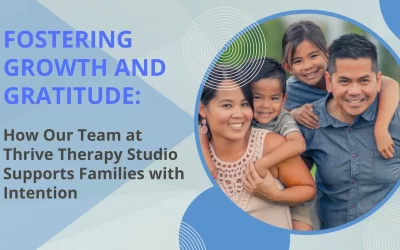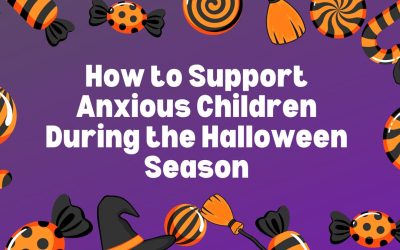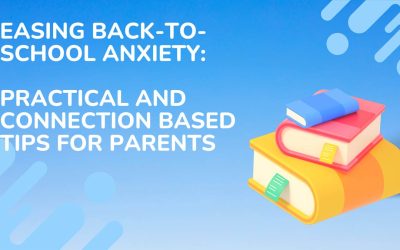Blog
Fostering Growth and Gratitude: How Our Team at Thrive Therapy Studio Supports Families with Intention
As we enter what I like to call gratitude season (otherwise known as November!), I’ve been reflecting deeply on the…
How to Support Anxious Children During the Halloween Season
Halloween is a holiday full of excitement for many kids — costumes, candy, and spooky fun. But for some children, the season can feel overwhelming instead of enjoyable.
6 Warning Signs Your Teen May Benefit from Therapy for Anxiety or Depression
Parenting a teenager can be both rewarding and challenging. Teens are navigating a world of academic pressures, social dynamics, changing identities, and big…
How to Tell if Your Child’s Back-to-School Worries Need Extra Support
It’s been about a month since the school year started. For many families, the first few weeks are full of excitement, new routines, and the normal jitters that come with…
Back-to-School Stress: How Parent Self-Care Helps Your Child Thrive
As a parent, the back-to-school season can feel like a juggling act of forms, supplies, schedules, and emotions — not just your child’s, but your own.
Easing Back-to-School Anxiety: Practical and Connection Based Tips for Parents
As summer winds down, many families find themselves navigating the often stressful transition back to school. For children and teens with anxiety, this time of year can…
When Siblings Spend Too Much Time Together: Managing Conflict at Home
While summer can be a great time for bonding, the extra togetherness often brings out the worst in sibling relationships. Parents everywhere know the sound…
Supporting LGBTQIA+ Youth: A Guide for Parents
June is Pride Month, a time to celebrate the strength, courage, and brilliance of the LGBTQIA+ community. At Thrive Therapy Studio, we specialize in working with children, teens, and…
Summer Vacation Tips for Parents: Helping Kids Cope with Summer Transitions: Camp, Travel & Unstructured Time
Summer often brings a welcome break from school routines—but it also introduces a wave of new transitions…
Supporting Teens Over Summer Break: Independence, Motivation & Mental Health
Summer can be a welcome break for teens—but it can also come with unique challenges. Without the daily structure of school, many teens struggle with…
Reach out to start
your healing journey











